Nature and development of science
Based on the Australian Curriculum, Nature and development of science in Science Year 5 includes:
- ACSHE081 Science involves testing predictions by gathering data and using evidence to develop explanations of events and phenomena and reflects historical and cultural contributions
- Plus Plan
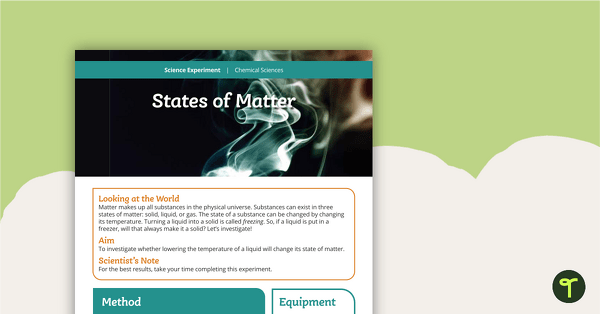
Science Experiment – States of Matter
A science experiment that investigates how a substance's state of matter can be changed.
- Plus Plan
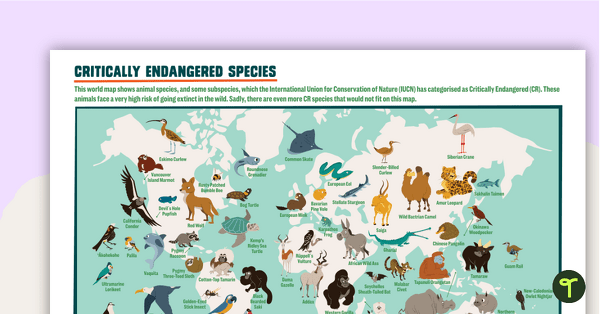
Critically Endangered Species Map – Poster
A poster of the world map featuring 64 species and subspecies that are on the critically endangered list.
- Plus Plan
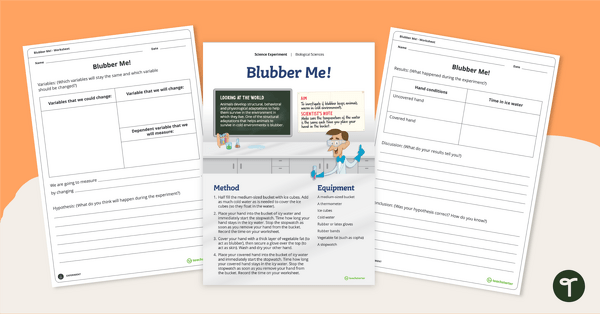
Arctic Animal Adaptations- Blubber Me! Experiment
Explore the structural adaptation of blubber with an Arctic Animal Adaptation experiment.
- Plus Plan
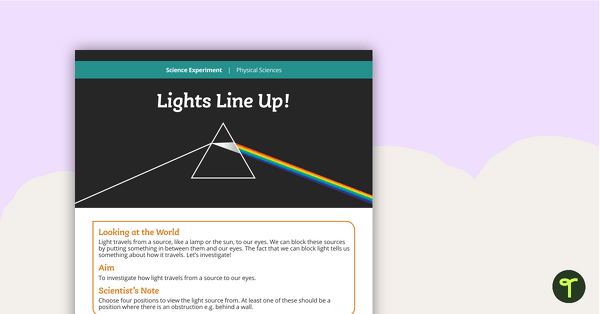
Science Experiment - Lights Line Up!
A science experiment which explores light.
- Plus Plan
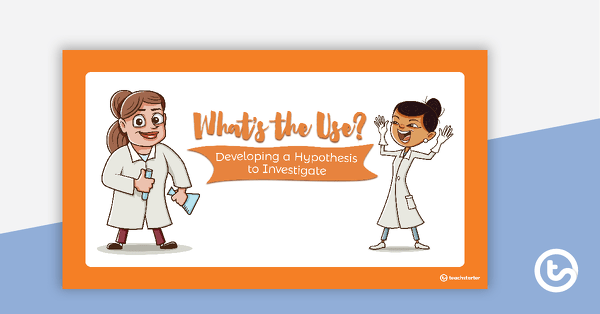
What's the Use? PowerPoint - Developing a Hypothesis to Investigate
A teaching presentation discussing the development of a scientific hypothesis.
- Plus Plan
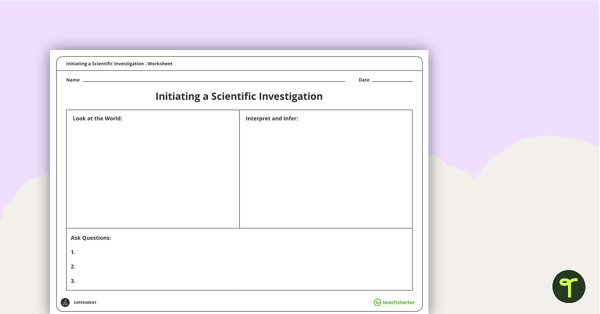
Initiating a Scientific Investigation Worksheet
A worksheet to help the students begin the process of a scientific investigation.
- Plus Plan
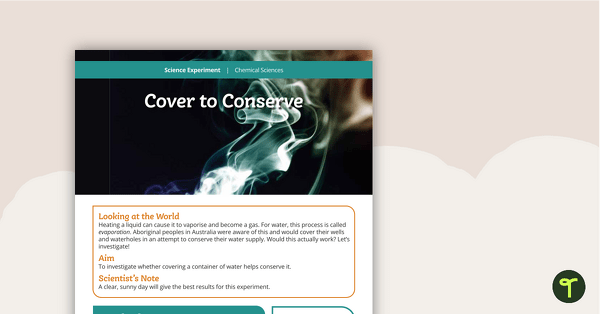
Science Experiment - Cover to Conserve
A science experiment that investigates if evaporation can be reduced by covering a body of water.
- Plus Plan
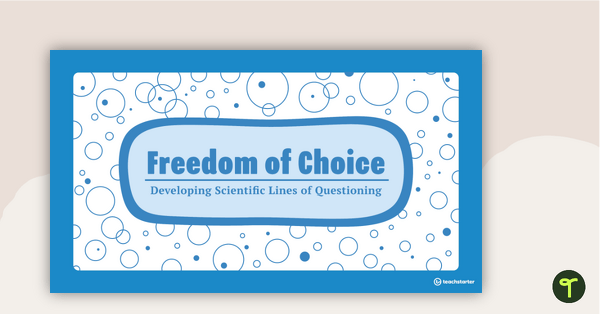
Freedom of Choice PowerPoint - Developing Scientific Lines of Questioning
A teaching presentation discussing the development of scientific lines of questioning.
- Free Plan
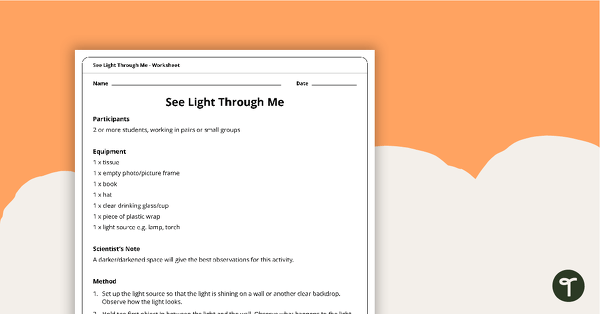
See Light Through Me Worksheet
A worksheet that explores classification of objects according to light transmission.
- Plus Plan
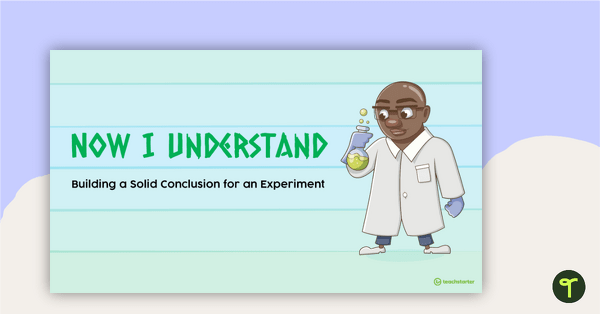
Now I Understand PowerPoint - Building a Solid Conclusion for an Experiment
An educational teaching presentation introducing the students to the R.E.R.U.N. method for writing a scientific conclusion.
- Plus Plan
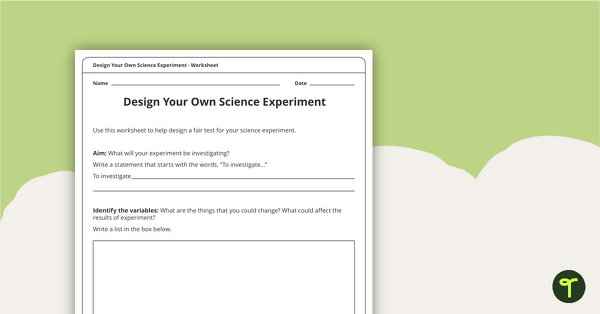
Design Your Own Experiment Worksheet
A worksheet to develop students' ability to design fair, scientific experiments.
- Plus Plan
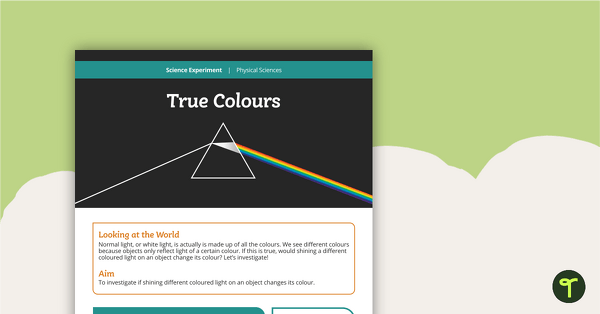
Science Experiment - True Colours
A science experiment that explores the perception of colour.
- Plus Plan
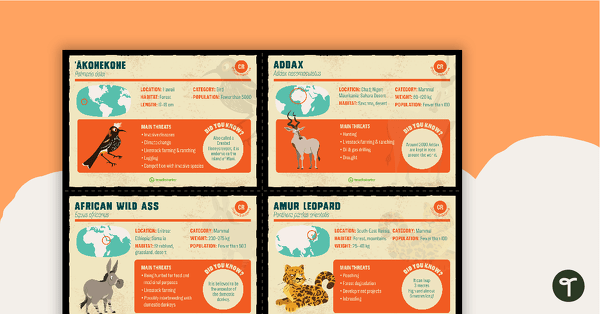
Endangered Species Facts – Task Cards
Fact cards featuring 64 species and subspecies that are on the critically endangered list.
- Plus Plan
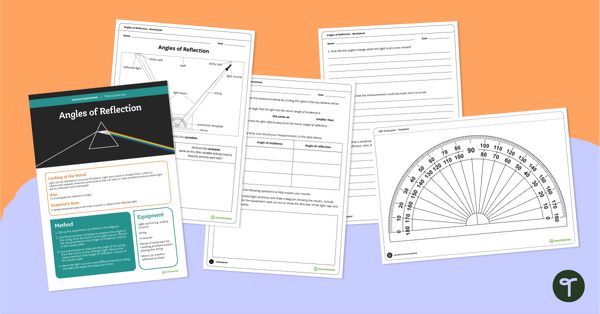
Science Experiment - Angles of Reflection
A science experiment that explores reflected light.
- Plus Plan
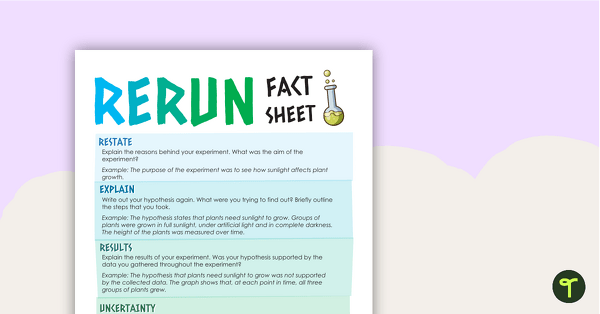
R.E.R.U.N. - Writing a Scientific Conclusion Fact Sheet
An educational fact sheet introducing the students to the R.E.R.U.N. method for writing a scientific conclusion.
- Plus Plan
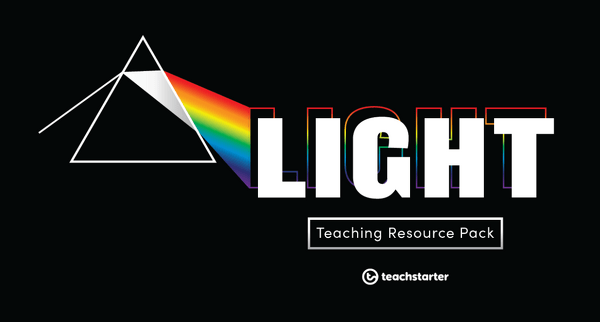
Light Teaching Resource Pack
A comprehensive set of posters, activities and worksheets related to the concept of light.
- Plus Plan
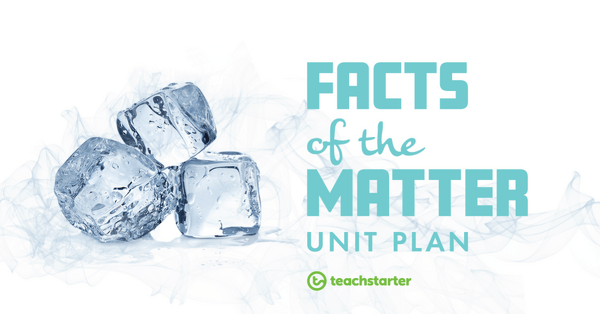
Facts of the Matter
This Chemical Sciences unit explores the concept that solids, liquids and gases have different observable properties and behave in different ways.
- Plus Plan
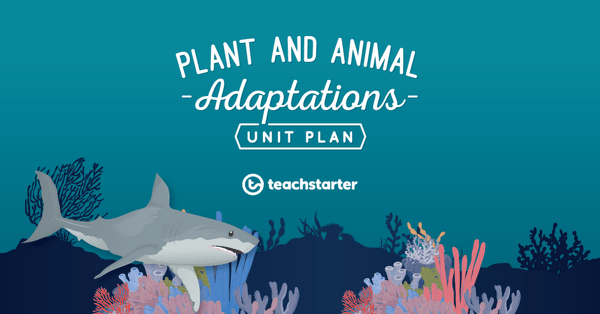
Plant and Animal Adaptations Unit Plan
This Science unit addresses the concept of plant and animal adaptations.
- Plus Plan
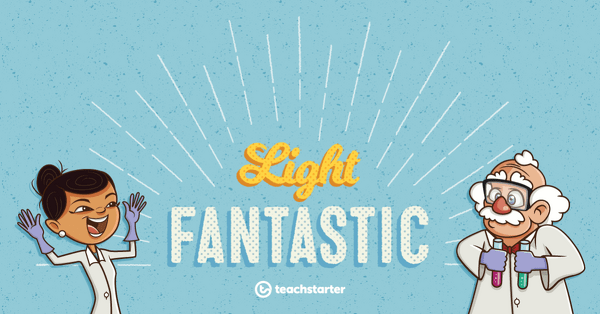
Light Fantastic Unit Plan
This Physical Sciences unit addresses the properties of light. It explores the phenomena of reflection, refraction, shadow and more.
- Plus Plan
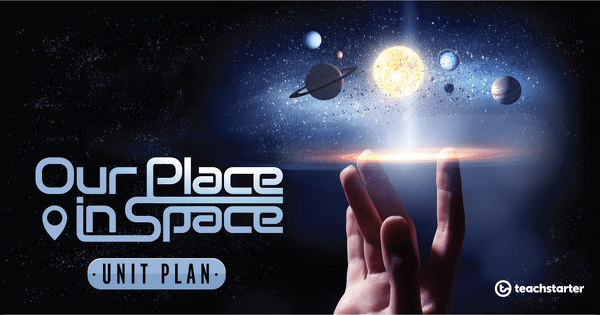
Our Place in Space - Unit Plan
This Earth and Space Sciences unit explores the concept that Earth is part of a system of planets orbiting around a star (the sun).
- Plus Plan
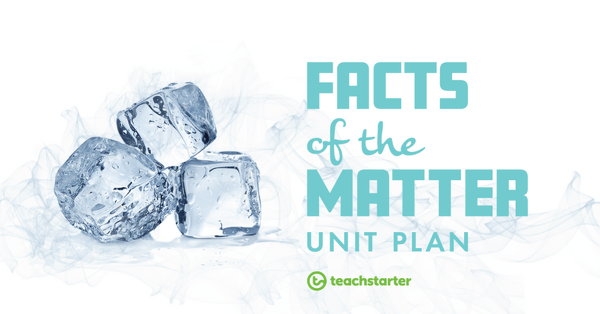
Changing States of Matter
A 60 minute lesson in which students will explore the way solids, liquids and gases change in different situations.
- Plus Plan
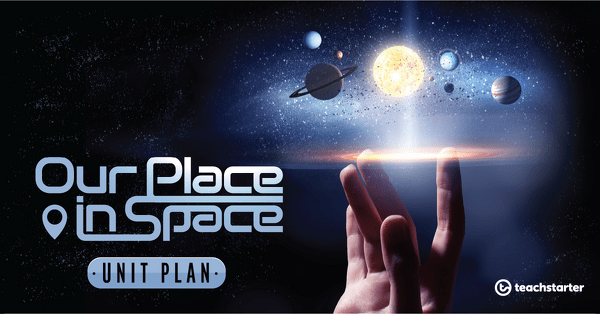
The Sun - Solar System Central
- Plus Plan
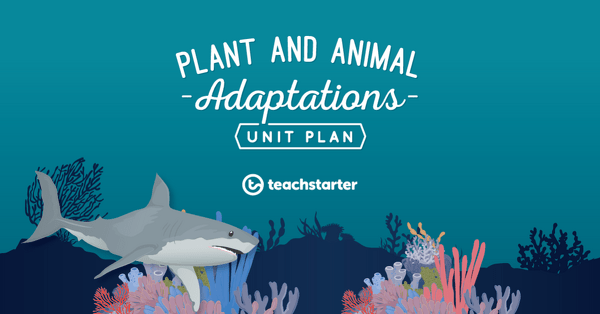
Blubber Me Experiment
A 60 minute lesson in which students will investigate how blubber works as an insulator.
- Plus Plan
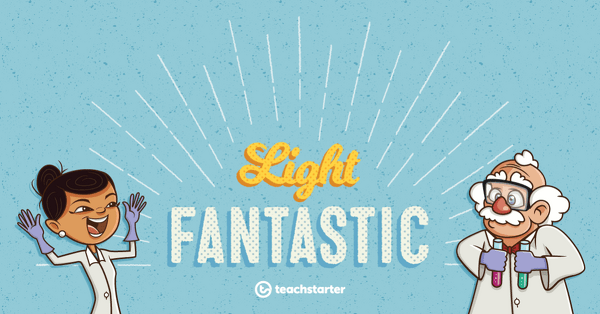
Reflecting Light
A 60 minute lesson in which students will use mirrors to investigate some of the properties of reflected light.
- Plus Plan
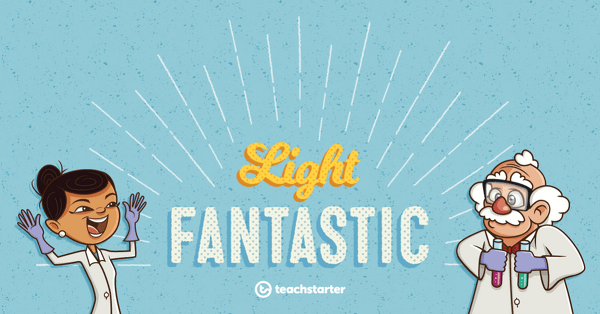
Lights Line Up!
A 60 minute lesson in which students will draw simple ray diagrams to show the paths of light from a source to the eyes.
- Plus Plan
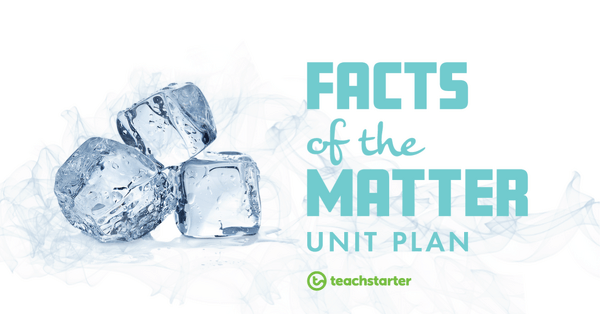
Knowing Matters!
A 60 minute lesson in which students will explore how knowledge of states of matter and their changes can help inform practices and decision making.
- Plus Plan
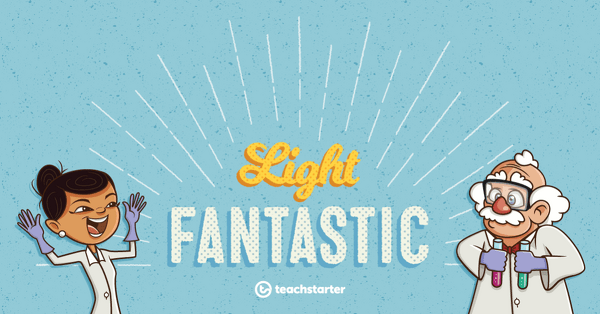
True Colours
A 60 minute lesson in which students will investigate how the colour of an object depends on the properties of the object and the colour of the light source.
- Plus Plan
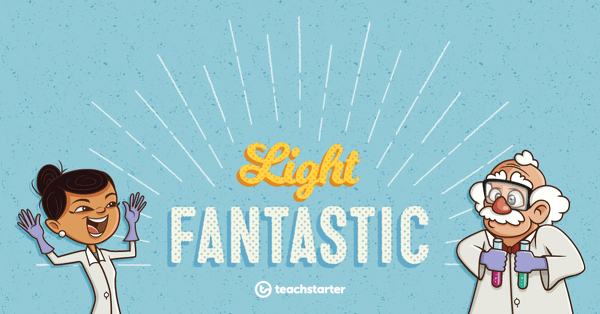
In the Shadows
A 60 minute lesson in which students will compare shadows from point and extended light sources.
- Plus Plan
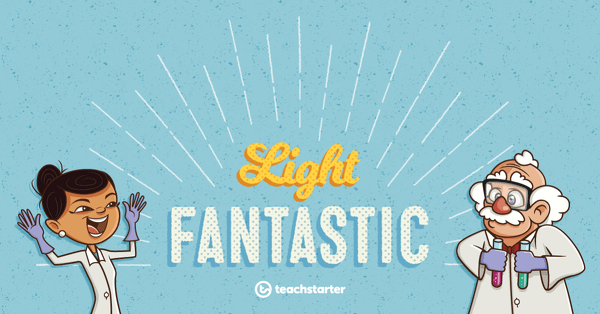
See Light Through Me
A 60 minute lesson in which students will classify objects based on how much light is transmitted through them.